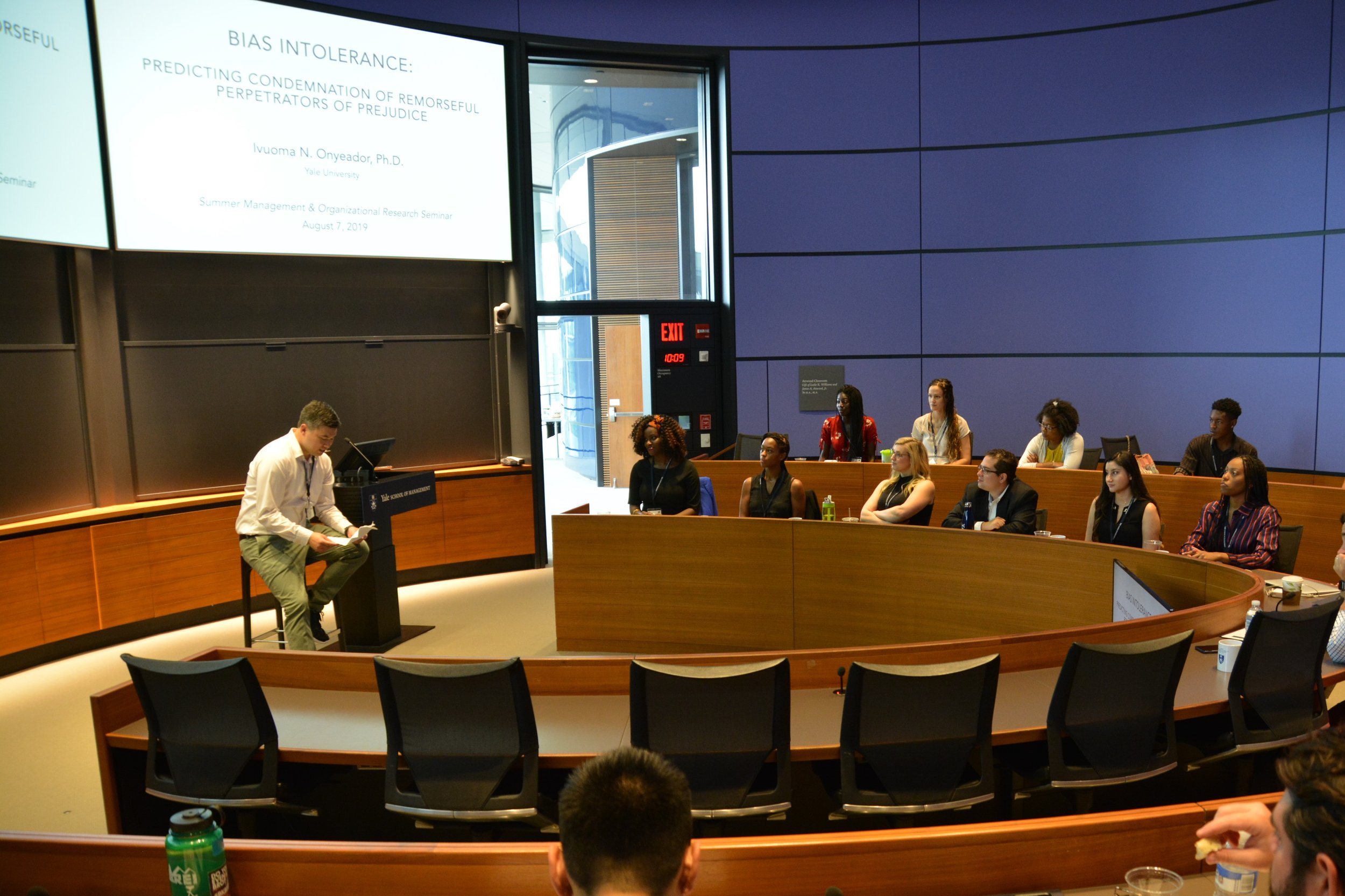Welcome to the summer psychology internship!
Take a closer look at our internship program and learn more about our most recent class of interns.

Take a closer look at our internship program and learn more about our most recent class of interns.

Photo by Julian Rucker
The founding mission of the summer internship program we started in late 2016 is to expand the field of psychology to people with experiences, backgrounds, and identities that are, through processes of marginalization and exclusion, not typically represented in the social sciences. This guiding principle has shaped internship activities and the experiences of faculty and interns. Expanding opportunities takes the shape of a few concrete actions:
Summer interns join our program to receive training and experience what a PhD program in the social sciences might be like for them. In this fashion, we tend to encourage applications to our internship from people who have ideas and motivation, but do not yet have the markers of training and expertise.
Summer interns join our program to learn and grow, not to produce publishable scholarship or produce a PhD. These outcomes can and do happen as a function of conducting the work in our internship, but publication and degrees are not the goal of the program. Instead, the goal of the program is to provide a sneak peak into a social science degree program from the people immersed in that program. Interns learn about what it is like to produce knowledge in the social sciences and all the hurdles that go into that process. We are equally proud of our interns who go on to PhD degrees as we are of the interns who go onto other pursuits.
Summer interns, over the course of the program, hear about the struggles of our students and faculty throughout their time in the program. The candid nature of these conversations is meant to help students get a sense of the real challenges of pursuing a PhD degree, the tradeoffs inherent in that decision, and the alternatives that are possible after the internship.
Although this principle was challenged during the pandemic, we strived throughout the program to create a safe space where people whose identities have been historically and contemporarily marginalized by academia could feel a sense of community in our program. This meant removing expense barriers and assisting interns with housing. It also meant providing non-research community related events for interns, students, and faculty to be together. Creating the internship is also done with input from graduate students and graduate students are compensated, during the internship, for their labor.